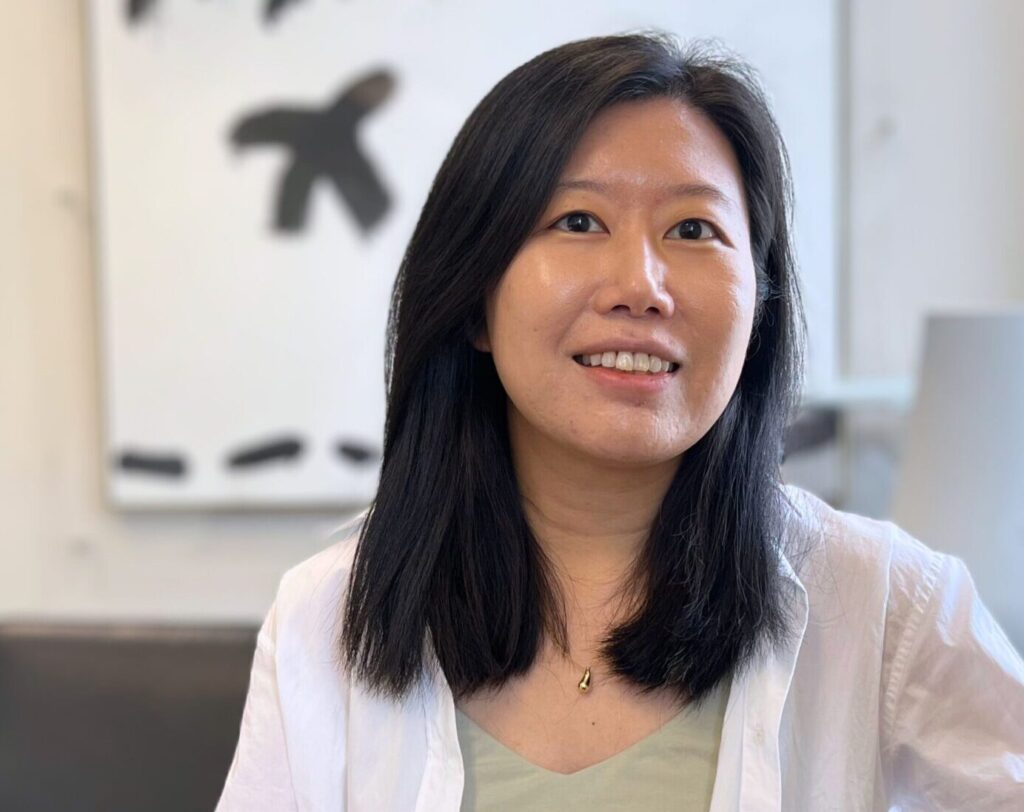PhD graduate Ran Hu explores structural and epistemic inequities contributing to trafficking violence and gender-based violence against sex workers
Categories: Students When Ran Hu first worked at an HIV/AIDS and human rights organization in China nearly 15 years ago, she spent time during outreach with many women sex workers who migrated from rural regions to Beijing. She had no idea that she would later continue to work with — and ultimately become a researcher focused on — this population in North America. Through her research, the recent graduate from U of T’s doctoral program in social work has made it her goal to address the structural inequities that contribute to violence against sex workers, trafficking, and gender-based violence.
When Ran Hu first worked at an HIV/AIDS and human rights organization in China nearly 15 years ago, she spent time during outreach with many women sex workers who migrated from rural regions to Beijing. She had no idea that she would later continue to work with — and ultimately become a researcher focused on — this population in North America. Through her research, the recent graduate from U of T’s doctoral program in social work has made it her goal to address the structural inequities that contribute to violence against sex workers, trafficking, and gender-based violence.
“My research approach now is rooted in the belief that social workers and policymakers need to first look at the complex social and structural conditions and inequities that lead to trafficking and different types of violence against people in the sex work industry,” says Hu, who received U of T’s Graduate Award for Scholarly Achievement in the Area of Gender-Based Violence in 2021. “At the same time, we must listen directly to sex workers and survivors of trafficking, and recognize the complexity and nuances of people’s lived realities and their fundamental rights and needs.”
After moving to the United States to pursue a master’s degree in social work, Hu spent five years working at a New York-based anti-trafficking social service organization. Since she spoke Mandarin, she met with many Chinese migrant women working in sex or massage work and provided comprehensive clinical services and advocacy for those who entered the industry due to force or fraud. As she spent time with migrant women and learned more about their needs and circumstances, she realized that their lived stories “were far more nuanced and complex and included a wide a spectrum of experiences,” while the dominant public narrative “just views all migrant women in sex or massage work as trafficking survivors who need to be saved.”
“The message is often that these migrant women are highly vulnerable and need to be rescued,” says Hu, noting that sometimes organizations use this type of story to legitimize funding or attract donors.
When Hu began her PhD, her first independent research project was to explore the ways social service and anti-trafficking advocacy groups tell stories about trafficking survivors and people in sex work. “I have done a number of qualitative studies that challenge the dominant anti-trafficking storytelling that often misrepresents the experiences of adult sex workers and trafficking survivors. I see this as a form of epistemic injustice.”
Hu’s research uncovered the real policy consequences of these misrepresentations, including the criminalization of sex work and policing targeting migrant and racialized communities. Her dissertation explored how community activists use Twitter to advocate for sex work decriminalization, how social media can facilitate community activism, and the intersecting systemic inequities that contribute to the challenges and barriers that activists have to navigate.
Upon completing the PhD program, Hu moved to Vancouver to begin her postdoctoral work with the University of British Columbia’s Faculty of Medicine. There, she joined the Centre for Gender & Sexual Health Equity and is working with a team on a project to evaluate sex workers health access. She was also recently awarded a CIHR Postdoctoral Fellowship, under which she will continue to explore the social and structural inequitable conditions that contribute to sex workers’ occupational health and safety. She primarily focuses on research with Asian migrant sex workers in Vancouver. “I spend a lot of time with our multilingual outreach team and am learning so much from migrant sex workers by listening to them sharing their day-to-day realities,” she says. Next year, Hu will start a tenure-track faculty position at the Ohio State University College of Social Work.
Hu says she benefited from a wide range of support for her research at the Factor-Inwentash Faculty of Social Work. The depth and breadth of expertise in a wide range of research methods allowed her to pursue both qualitative and quantitative studies. She also felt supported personally. “There’s this sense of collective care and support at the community level at the faculty,” says Hu, “as well as coming from my PhD supervisor, Dr. Peter A. Newman, and many other faculty members and peers I worked closely with.”
Related news:
- Q&A: Master of Social Work student Frances Li shares insight on the international student experience at U of T
- From cell biology to social work: Introducing MSW graduate Ayse Kumsal Tekirdag-Kosar
- FIFSW doctoral candidate Yu Lung receives an Emerging Scholars Grant from the Canadian Research Data Centre Network
- Six FIFSW PhD students receive a Royal Bank Graduate Fellowship
- PhD student Kedi Zhao among CASWE’s Outstanding Student Proposal Award recipients
- Vivian Leung’s research on immigration and anti-Asian racism is supporting families and social work practitioners